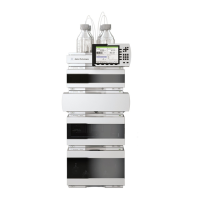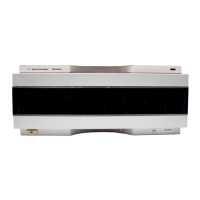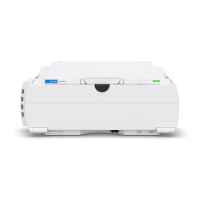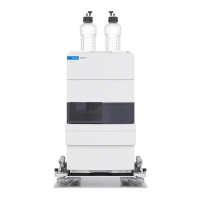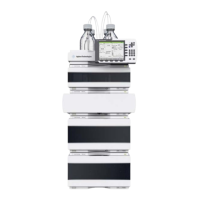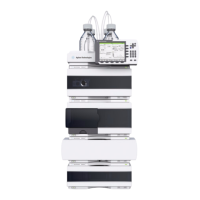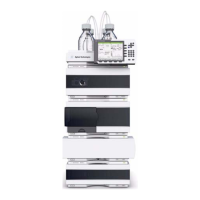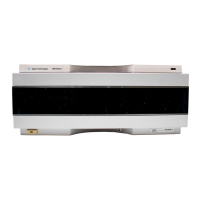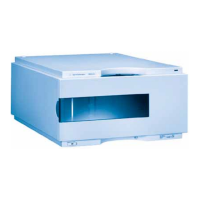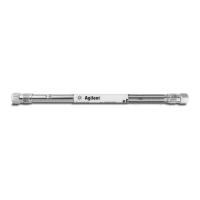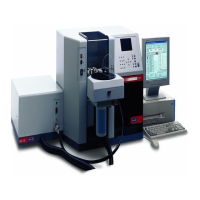1290 Infinity II High-Speed Pumps User Manual 71
3Using the Pump
Setting up the Pump with the Instrument Control Interface
Method Parameter Settings
The High-Speed Pump method setup parameters are in eight sections:
•Flow
•Solvents A and B
•Stoptime
•Posttime
• Pressure Limits
•Timetable
•Advanced
•External Contacts
Table 11 Method parameters
Parameter Limits Description
Flow 0.00 – 5.00 mL/min in
steps of 0.001.
Recommended flow
range:
0.05 – 5.00 mL/min.
The flow is the rate of movement of eluent along the column. It is important
that the flow rate is kept constant to ensure precise retention time and peak
measurements. Variations in flow rate can occur as a result of the partial
failure of the pumping system, air in the pumping system, a change in the
mobile phase viscosity or a temperature change.
Solvents A and B For each channel, you can select which of the two solvents to deliver. You
can set the percentage of solvent B to any value from 0 through 100 %. Sol-
vent A always delivers the remaining volume: 100 - %B. The solvent B check
boxes allow you to turn the solvent B channels on (checked) or off (cleared).
When the Use solvent types check box in the Compressibility section is
checked (see “Advanced Settings” on page 73), you click the down arrow
and select either a Generic solvent or a calibrated Solvent.
Stoptime 0.01 – 99999 min or
As Injector/No Limit
(an infinite run time).
The stoptime sets a time limit for your analysis. After the stoptime, all gradi-
ents are stopped and the pump parameters return to their initial values. The
pump can be used as a stoptime master for the complete analytical system.
The pump also stops the detectors if they have a No Limit stoptime setting.
If no limit is given, a method will have to be stopped manually.
Posttime 0.01 – 99999 min or
Off (0.0 min).
Your instrument remains in a not ready state during the posttime to delay
the start of the next analysis. You can use the Posttime to allow your column
to equilibrate after changes in solvent composition (for example, after gradi-
ent elution).
